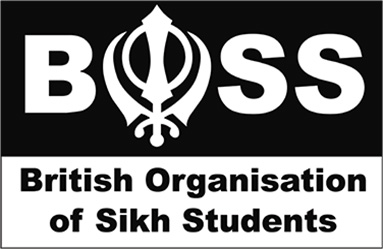Changing the narrative on mental health in the Punjabi community
BY SHURANJEET TAKHAR
Growing up in Handsworth, Birmingham, I had always felt comfortable walking up and down Soho Road, around Handsworth Park, or into Handsworth Wood. The ultra-diversity of the area meant that there was an incredible sense of community, best demonstrated through the variety of food shops where produce from all around the world was available at whim.
When I decided to go to University, I looked outside of Birmingham for somewhere to continue my studies, finding myself at the University of Bristol studying Politics and International Relations.
It goes without saying that moving to a new city to live independently for the first time was a difficult situation to navigate. At times it was overwhelming, and at others it was incredible. My time in Bristol was a huge learning-curve and in those three years I developed a much better understanding as to myself.
Slowly, my time in Bristol became increasingly difficult after the whirl and settling in of first year. I was lucky to have a few people from Birmingham around but I found it particularly difficult to feel settled among my course-mates. In Bristol I felt a notion of ‘difference’ I had never felt before, the student population felt somewhat distant and I realised that this was not the comfort of Handsworth.
I began to doubt myself in a way I had never done before: why was I unable to feel comfortable with people on my course? Why did I feel unable to approach people for the first time? Why had this changed from my time in Birmingham, where I felt very much able to broaden my social horizons?
My true-love at Bristol was my course. Out of everything, it provided me with a constant flow of motivation to go to lectures, seminars, and generally put effort into my work. I developed a fantastic relationship with my department, winning awards for my exams every year, and receiving prizes for my work.
However, there was something missing from my daily interactions. I became accustom to the steep hills and winding streets of Bristol where the buildings were outwardly beautiful, incredibly old, and steeped in history. But as I learnt more of Bristol’s history, its connection with the slave-trade, and its subsequent benefit to the university, I begun to understand the significance of the buildings I saw everyday. The outward decadence was masking an internal reality of money, privilege, and hierarchy which made me feel even more out of ‘place’.
In my third year I co-founded the first ever Punjabi Society at the University. We decided to label it as a Punjabi society to facilitate cultural events, and also have the option for events aimed at Sikh students. I was hugely excited to feel comfortable amongst the Punjabi students at the university, and eagerly anticipated our first event: Chaat and Chat.
Unfortunately, at the event, I found myself serving food and then standing awkwardly outside. I felt unable to go inside and speak/socialise with the attendees. I questioned myself, why I was being so cowardly, why I was standing outside not going in. I blamed no-body but myself. This occurred several more times in a variety of environments, something inside was telling me that I could not go in, I could not feel comfortable, and I wasn’t wanted.
For my time in Bristol, a hugely important support-structure were my housemates. I spoke about these difficulties with one of my best friends, detailing how I felt and the situations in which I felt this way. It felt great to speak about this as I had never really thought about myself as someone who could go through any type of anxiety. Being open and honest really helped me understand why I was feeling like this: moving from a space where I felt constantly comfortable to one where the notion of ‘difference’ was enforced so overtly, I realised why sustained interactions were more difficult in Bristol.
I realised that notions of feeling ‘weak’ or ‘helpless’ were a fallacy – there was no such thing as being ‘weak’ if you speak openly about mental health difficulty. Being honest in these situations is a signal of strength, for both men and women who discuss such difficulties. I realised that ego, whether intentional or unintentional, stopped men especially from discussing their mental health, whether they were feeling ok, whether they were in a perplexing place, or whether they had any worries, fears, or anxieties.
I was hugely grateful that my housemates helped me break down my stigma against acknowledging, discussing, and learning about my mental health difficulties at Bristol. This helped me learn a lot about myself and others.
I am now at Oxford University doing a masters, and I feel a lot more comfortable with the people around me. Looking back, it shocks me at how difficult things were at Bristol.
I realised that I was incredibly lucky having this support structure in place, and I acknowledge that many in the Punjabi/Sikh community do not have that opportunity. Therefore, I started an initiative called Taraki which looks to empower the Punjabi/Sikh community to offer support to those going through difficulty, ensuring that those going through a hard time are not stigmatised, marginalised, and silenced.
Follow us on our journey on Twitter, Facebook, and Instagram.
